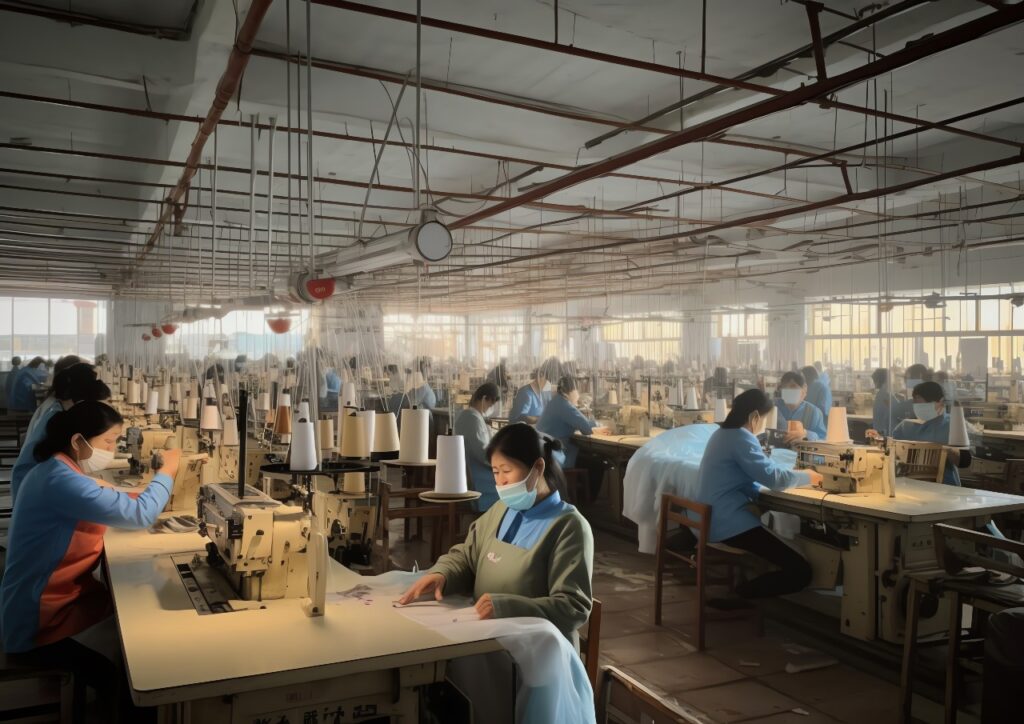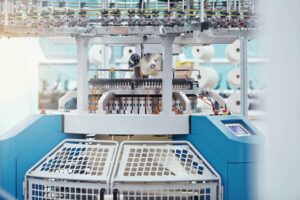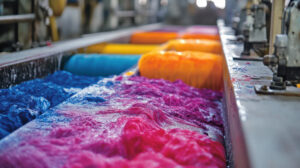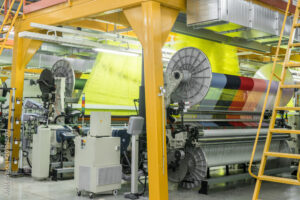The textile industry isn’t just about fabrics and fashion – it’s about the millions of people who make it all possible. Yet, behind the scenes, there are significant labour challenges that often go unnoticed. From low wages to poor working conditions, the industry grapples with ethical issues that demand our attention. Let’s dive into these challenges and explore how we can pave the way for a more ethical future.
Labor Challenges in the Textile Industry
1. Low Wages: Many textile workers, particularly in developing countries, struggle to make ends meet with meagre wages that barely cover their basic needs.
2. Poor Working Conditions: Textile factories can be tough places to work, with long hours, little rest, exposure to harmful chemicals, and safety concerns looming over workers’ heads.
3. Exploitation of Workers: Some workers face exploitation, enduring forced labour, child labour, and discrimination – issues that should have no place in any workplace.
4. Lack of Transparency: With complex supply chains, it’s often hard for consumers to trace where their clothes come from and if they were made ethically.
Strategies for Ethical Production
1. Adopting Fair Labor Practices: Companies can make a difference by ensuring fair wages, reasonable hours, safe conditions, and respecting workers’ rights – it’s about doing what’s right.
2. Supplier Audits and Monitoring: Regular checks on suppliers’ facilities can help uncover any labour violations and ensure that everyone in the chain is treated fairly.
3. Supporting Worker Empowerment: Education, training, and involving workers in decision-making processes can empower them and foster a more positive workplace culture.
4. Promoting Supply Chain Transparency: Letting consumers peek behind the curtain by sharing information about suppliers and production processes builds trust and holds everyone accountable.
5. Collaboration and Partnerships: When governments, businesses, NGOs, and labour organizations join forces, they can tackle labour challenges more effectively and create lasting change.
6. Consumer Education and Awareness: By educating consumers about ethical production and offering ethically made options, we can drive demand for fair practices and push companies to do better.
Case Study: Patagonia’s Ethical Production Practices
Take Patagonia, for example. They’re not just about outdoor gear – they’re committed to doing things right. From auditing suppliers to advocating for fair wages, they set a high bar for ethical production and inspire others to follow suit.
The outdoor gear company is as much about doing right by people and the planet as it is about making quality products.
- Fair Treatment for All: Patagonia walks the talk when it comes to treating workers fairly. They make sure the folks who make their gear are paid well and work in safe conditions by regularly checking up on suppliers’ factories.
- Looking Out for Workers: At Patagonia, they’re all about supporting workers. They believe in giving them a voice, offering training, and making sure they’re treated with respect. It’s all part of creating a positive work environment.
- Openness and Trust: Patagonia doesn’t keep secrets when it comes to how their stuff is made. They’re upfront about where their materials come from and how their gear is put together. Being open builds trust with customers and keeps Patagonia accountable.
- Taking Care of Our Planet: Beyond just making clothes, Patagonia is on a mission to protect the environment. They use eco-friendly materials and speak up for causes like saving forests and cleaning up oceans.
- Spreading the Word: Patagonia isn’t shy about sharing its values. They want people to know why it matters to buy ethically made products and take care of the planet. It’s all about making informed choices.
In a nutshell, Patagonia isn’t just a clothing company – it’s a force for good. By sticking to their values of fairness, transparency, and environmental stewardship, they’ve shown that doing the right thing can go hand in hand with running a successful business. They’re not just making gear – they’re making a difference.
Conclusion
The textile industry has the power to change lives – for the better. By prioritizing fair treatment, transparency, and worker well-being, we can create an industry that not only produces great products but also respects the people behind them. Let’s work together to make ethical production the norm because when we do, everyone wins – from workers to consumers to the planet we all call home.




